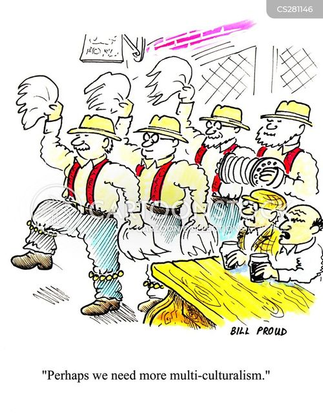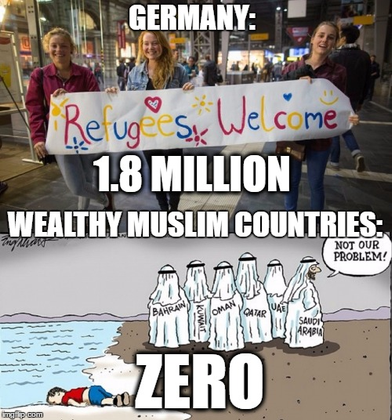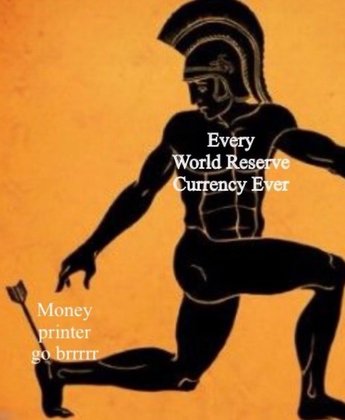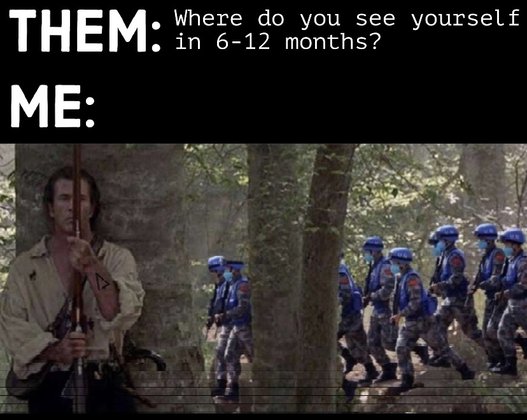Dear Hiveans,
Today a short post on my view on immigration that may get opposition from left and right.
I love multikulti (short German word for multiculturalism), which means the presence of several cultures in one area; often it is used normatively, according to which the coexistence of members of different cultures should take place without assimilation.
I have lived multikulti when I studied in a Bavarian medium-sized city, when I lived in different flat- or house-sharing communities. I cohabited with people from Russia, Poland, Bosnia, Turkey, Albania, Kosovo, Syria, Morocco, France, England, Norway, Brazil and the USA.
These were enriching experiences, as I could learn about many different cultural aspects, from language, political worldviews, history, art, values / norms, religion, dating, or food.
And - apart from minor conflicts - this form of coexistence worked very well, in my opinion, because it was based on voluntariness, openness to others, the same rules for everyone, and no dominating ethnicity.
Unfortunately these kinds of small-scale voluntary multikulti environments are rather rare. The standard (in Germany and many other European countries) is the following: big cohorts of ethnicities immigrate within a rather short timeframe and cluster within some big city's suburb. In Germany it was the Turks by the 1960s, Russians (especially Russia Germany, wiki) by the 1980s, Yugoslavs and Kosovars by the 1990s, and Syrians/Arabs by 2015. This leads to some kind of ghetto where Syrians live within one quarter, have little incentive to learn German, stay and marry within their "tribe", have difficulties finding a job (thanks to the German welfare state less of a problem) and oftentimes don't even accept German law and German (western) customs, e.g. women/girls freely walking through the city without being veiled. In addition, there are sexual assaults and occasional terrorist attacks. All this leads to huge tensions and feeds populism.
Much of this big-scale immigration was unplanned, but supported by government, and I find that wrong. Germany (and other European countries) have no prudential immigration strategy (such as Canada or Australia), but this is urgently necessary. As Europe is still an attractive address for potential migrants (but for how long?), instead of increasing minority groups (e.g. Arabs) and encourage them to not integrate, European countries should choose which kind of immigrants they need and provide the right incentives for them.
And that is - among many, many things - one policy that Switzerland gets better than Germany. Here there are relatively more foreigners than in Germany, but from a more diverse set of ethnicities, and the integration works a lot better.
What do you think about multikulti? And how is immigration going in your country?
Have a great day,
zuerich
Memes...







Liebe Hiver,
Heute ein kurzer Post zum Thema Einwanderung, der von links und rechts Widerspruch hervorrufen kann.
Ich liebe Multikulti, d.h. das Vorhandensein mehrerer Kulturen in einem Gebiet; oft wird es normativ verwendet, wonach das Zusammenleben von Angehörigen verschiedener Kulturen ohne Assimilation stattfinden soll.
Ich habe multikulti gelebt, als ich in einer bayerischen Grossstadt studierte und in verschiedenen "Wohngemeinschaften" lebte. Ich habe mit Menschen aus Russland, Polen, Bosnien, der Türkei, Albanien, dem Kosovo, Syrien, Marokko, Frankreich, England, Norwegen, Brasilien und den USA zusammengelebt.
Das waren bereichernde Erfahrungen, denn ich konnte viele verschiedene kulturelle Aspekte kennen lernen, von der Sprache über politische Weltanschauungen, Geschichte, Kunst, Werte/Normen, Religion, Dating bis hin zum Essen.
Und - abgesehen von kleineren Konflikten - hat diese Form des Zusammenlebens sehr gut funktioniert, weil sie auf Freiwilligkeit, Offenheit gegenüber anderen, gleichen Regeln für alle und keiner dominierenden Ethnie beruhte.
Leider sind solche freiwilligen Multikulti-Milieus in kleinem Maßstab eher selten. Der Standard (in Deutschland und vielen anderen europäischen Ländern) ist folgender: große Kohorten von Ethnien wandern innerhalb eines relativ kurzen Zeitraums ein und konzentrieren sich in einem Vorort einer Großstadt. In Deutschland waren es in den 1960er Jahren die Türken, in den 80ern die Russen (insbesondere Russlanddeutsche, wiki), in den 90ern die Jugoslawen und Kosovaren und 2015 die Syrer/Araber. Dies führt zu einer Art Ghetto, in dem Syrer in einem Viertel leben, wenig Anreize haben, Deutsch zu lernen, innerhalb ihres „Stammes“ bleiben und heiraten, Schwierigkeiten haben, einen Job zu finden (dank des deutschen Sozialstaates weniger ein Problem) und oft nicht einmal deutsche Gesetze und deutsche (westliche) Bräuche akzeptieren, z.B. Frauen/Mädchen, die frei und unverschleiert durch die Stadt gehen. Außerdem kommt es zu sexuellen Übergriffen und gelegentlich zu Terroranschlägen. All dies führt zu enormen Spannungen und nährt den Populismus.
Ein großer Teil dieser Masseneinwanderung war ungeplant, wurde aber von der Regierung unterstützt, und das halte ich für falsch. Deutschland (und andere europäische Länder) haben keine umsichtige Einwanderungsstrategie (wie Kanada oder Australien), was aber dringend notwendig ist. Da Europa immer noch eine attraktive Adresse für potenzielle Migranten ist (aber wie lange noch?), sollten die europäischen Länder, anstatt die Zahl bestimmter Minderheiten (z.B. Araber) zu erhöhen und sie zu ermutigen, sich nicht zu integrieren, auswählen, welche Art von Einwanderern sie brauchen, und die richtigen Anreize für sie schaffen.
Und das ist - neben vielen, vielen anderen Dingen - eine Politik, die die Schweiz besser macht als Deutschland. Hier gibt es relativ mehr Ausländer als in Deutschland, aber mit einer größeren Vielfalt an Ethnien, und die Integration funktioniert viel besser.
Was meinst Du zu Multikulti? Und wie läuft die Einwanderung in Deinem Land?
Have a great day,
zuerich
Memes...







Immigration has caused a lot of problems here in Sweden. Its not a problem with different cultures, but we have a large population now that doesnt share the same ground values we once built the country on and we we have approx 800k people who cant read. Its impossible to integrated those people in such a high technology society as Sweden.
When you do immigration you have to really think of what you want to achieve and what gives the best outcome.
The U.S. is a rather unique case. We are literally a nation of immigrants. In the beginning, all were welcome because we needed these people to build the nation. When my great great paternal grandfather immigrated from Swabia 1848, this was still the case. However, by 1906, when my maternal grandparents immigrated, the borders were already beginning to close. The nation was becoming more selective, and in the 1920s this selectivity was enforced by discriminatory immigration laws.
I think the evolution of immigration policy demonstrates a basic principal: immigrants are not introduced into a neutral environment. There is a resident population that figures in the equation. That was the mistake of the Europeans when they didn't regulate (plan) immigration. That's the problem in the U.S. as my country wrestles with immigration as a political and social issue.
We need immigrants. A lot of people don't realize that. We would have zero or minimal population growth without immigration. The implications of that are dire. What we need is a rational immigration policy, such as the one you describe in Switzerland. Immigration to the US has been so uncontrolled, even chaotic, that anti-immigration sentiment runs high. We are indeed in the midst of an immigration crisis.
Now we not only have to figure out how to manage immigration so that it benefits us, but we also have to figure out how to sell a rational immigration policy to a lot of voters.
Stimme dir zu, Einwanderung und Integrationswillen gehören zusammen wenn es gelingen soll. 🤝🏻
Wooow
I love the experience you described with having to live with different people from different ethnicities and backgrounds…really a lot to learn. Those kind of environments are rare like you said…would really love to experience something like that in the future
Es ist nicht so sehr die Ethnizität das Problem, sondern vor allem eine bestimmte, jeglicher Aufklärung trotzende und bildungsfeindliche Religion, die sich in Europa unwidersprochen breitmacht und die unsere Kultur und unsere Werte zerstören wird.
This meme is funny, and I really hope it's meant to be.
What could possibly turn a queen into a slave?
It is not funny at all. Several generations of islam and you end up where many countries are currently.
Oh. I get it now.
I'm sorry about that.
So einfach is das.
Thanks!
Living among people from different cultures must be an interesting experience. It's great that you're coping and even enjoying it. I've read about people who seem very pissed with immigrants. I don't blame them; I can only imagine how it feels to have a place that was once peaceful become crowded.
Here in my country, we are still developing, so we don't have a large immigrant population (and I don't think there's any immigration strategy). We mostly emigrate to developed countries and continents.
Greetings!🤗
Ich denke das Problem ist die unkontrollierte Massenmigration, Ghettobildung, wirtschaftliche Probleme, wenn sich alle an die Regeln halten und friedlich zusammenleben würden, wäre es kein Problem, sogar eine Bereicherung.
In my country since colonial times there has always been multicultural immigration, although in recent years many people from my country have emigrated to other countries due to the economic situation.
!LOL
Posted using MemeHive
lolztoken.com
Fish and ships.
Credit: reddit
$LOLZ on behalf of holovision
(7/10)
NEW: Join LOLZ's Daily Earn and Burn Contest and win $LOLZ@zuerich, I sent you an
Die Frage erreicht jemanden, der 80 % seines „Arbeitslebens“ außerhalb der Landesgrenze verbrachte, innerhalb der er geboren wurde. Vollkommen egal, wo ich mein Zelt auch aufschlug, es war stets Multikulti an der Tagesordnung und vom „Fremdsein“ keine Spur. Auf dem Balkan lebend, wo dieses „Gemisch“ zwar auch verheerende Folgen nach sich zog, zeigt sich mir dennoch, dass (wenn nationalistische Feuerteufel nicht die Regie übernehmen) es funktioniert. Im Augenblick ist übrigens Nepal, Bangladesch und Pakistan hoch angesagt. Der große Unterschied zu anderen Staaten besteht allerdings darin, dass die Neuankömmlinge umgehend in den aktiven Arbeitsprozess eingebunden werden.
I always appreciate your kindness and generosity!
I think Swiss people are strong and proud people!Guten tag! Dear my comrade @zuerich !
This is my first time hearing about multikulti. I'm not even sure if I understood your English sentences, but I'll tell you honestly what I think and feel!
In the world I live in, there are many Chinese, Southeast Asian, and Muslim workers. They came here to provide cheap labor. So, there is concern and resentment about the problems they cause, including the crimes they cause.
In particular, it is common for lower-class people to complain that they are taking away their jobs and wages!
A growing number of East Asians are becoming concerned about the terrorist and criminal activities committed by Muslim immigrants in Europe.
As someone who belongs to the lower class of society, I am concerned about the increasing number of foreign workers.
I hope you won't be disappointed by my low social status!😂Dear my friend @zuerich !
Danke, gut!
Thank you so much @zuerich, I see what you are doing. This means a lot to me and am super grateful 🙏